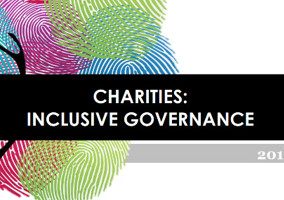The #NonGraduatesWelcome campaign, which has been calling on charities to reconsider the qualifications they ask for when recruiting, has launched its manifesto and website.
The campaign's aim is to encourage charities to remove the requirement for an unspecified degree-level qualification from fundraising job descriptions, where it is unnecessary.
“In its place we want charities to be clearer with applicants about the skills, abilities, knowledge and experience needed to be successful in the role, empowering applicants to decide how best to demonstrate their suitability,” the new manifesto states.
The campaign highlights the Institute of Fundraising’s Change Collective report titled Who Isn’t in the Room?, which shows “the fundraising profession does not reflect the beneficiaries or the donors we work with”.
#NonGraduatesWelcome states: “By making it a requirement for applicants to have an unspecified degree, organisations are slamming the door in the faces of talented fundraisers simply because – for whatever reason – they didn’t go to university.”
It adds: “There are many reasons, through choice or through circumstance, why people don’t go to university. But just because university wasn’t the right path for them doesn’t mean they don’t have the skills, abilities and potential to be incredible fundraisers. In fact, there are many other ways people can acquire and refine these skills – both in their personal and professional lives”.
The campaign outlines three steps that employers can take to make their organisations more accessible:
- Review your own organisation’s job descriptions and commit to removing this requirement.
- Speak to peers and colleagues (especially those requiring degree-level qualifications) to call on them to review their job descriptions, helping them to make their fundraising teams more diverse and inclusive.
- Include the #NonGraduatesWelcome hashtag when advertising your roles.
The campaign states that fundraising is a skilled role, but says that “rather than using a degree as a proxy for other skills, we want organisations to think more carefully about the actual skills, knowledge and experience they need and how best to check for them during the recruitment process.
“As part of this, we are calling on organisations to be more open and transparent with applicants about the knowledge, skills and experience they are being judged on.”
Related articles
|












